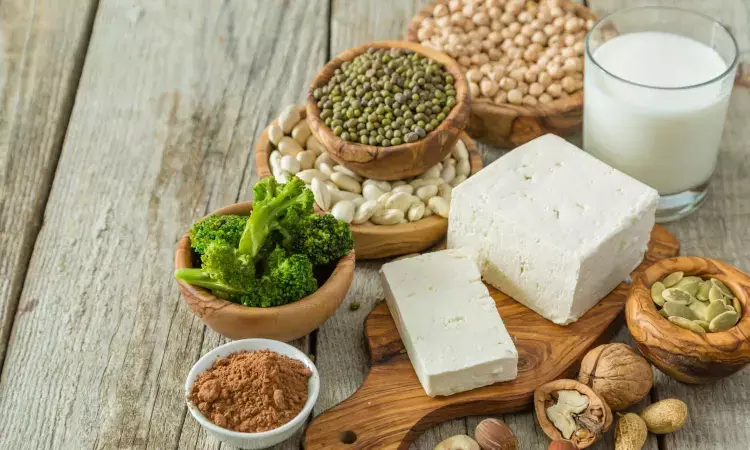- Home
- Medical news & Guidelines
- Anesthesiology
- Cardiology and CTVS
- Critical Care
- Dentistry
- Dermatology
- Diabetes and Endocrinology
- ENT
- Gastroenterology
- Medicine
- Nephrology
- Neurology
- Obstretics-Gynaecology
- Oncology
- Ophthalmology
- Orthopaedics
- Pediatrics-Neonatology
- Psychiatry
- Pulmonology
- Radiology
- Surgery
- Urology
- Laboratory Medicine
- Diet
- Nursing
- Paramedical
- Physiotherapy
- Health news
- Fact Check
- Bone Health Fact Check
- Brain Health Fact Check
- Cancer Related Fact Check
- Child Care Fact Check
- Dental and oral health fact check
- Diabetes and metabolic health fact check
- Diet and Nutrition Fact Check
- Eye and ENT Care Fact Check
- Fitness fact check
- Gut health fact check
- Heart health fact check
- Kidney health fact check
- Medical education fact check
- Men's health fact check
- Respiratory fact check
- Skin and hair care fact check
- Vaccine and Immunization fact check
- Women's health fact check
- AYUSH
- State News
- Andaman and Nicobar Islands
- Andhra Pradesh
- Arunachal Pradesh
- Assam
- Bihar
- Chandigarh
- Chattisgarh
- Dadra and Nagar Haveli
- Daman and Diu
- Delhi
- Goa
- Gujarat
- Haryana
- Himachal Pradesh
- Jammu & Kashmir
- Jharkhand
- Karnataka
- Kerala
- Ladakh
- Lakshadweep
- Madhya Pradesh
- Maharashtra
- Manipur
- Meghalaya
- Mizoram
- Nagaland
- Odisha
- Puducherry
- Punjab
- Rajasthan
- Sikkim
- Tamil Nadu
- Telangana
- Tripura
- Uttar Pradesh
- Uttrakhand
- West Bengal
- Medical Education
- Industry
Low fat vegan diet may help control menopause related hot flashes

A recent study examined the connection between diet, gut microbiome, and postmenopausal symptoms uncovered the intriguing associations that could potentially reshape the understanding of symptom management. The findings were published in Complementary Therapies in Medicine.
This study involved 84 postmenopausal women with moderate-to-severe hot flashes and focused into the impact of a specific dietary intervention. The participants were randomly assigned either a low-fat, vegan diet with cooked soybeans or instructed to maintain their usual diet. The study spanned over 12 weeks, in which the frequency and severity of hot flashes were meticulously tracked using a mobile application.
In a subset of 11 women, deep shotgun metagenomic sequencing of the gut microbiome was conducted at both baseline and after the 12-week dietary intervention. While alpha and beta diversity showed no significant differences, certain families, genera, and species exhibited changes in abundance. Also, families like Enterobacteriaceae and Veillonellaceae, genera including Fusicatenibacter and Intestinimonas, and species like Clostridium asparagiforme and Prevotella corporis were differentially abundant.
The results showed a remarkable 95% reduction in total hot flashes during the dietary intervention. Severe hot flashes disappeared entirely, and both daytime and nighttime hot flashes decreased significantly. While exploring the microbiome's role this study found associations between changes in specific bacteria and the reduction in severe day and night hot flashes. These changes in the relative abundance of Porphyromonas and Prevotella corporis were linked to reduced severe day hot flashes, while Clostridium asparagiforme was associated with a reduction in total severe hot flashes and severe night hot flashes.
This exploratory analysis suggests a potential link between changes in postmenopausal symptoms and alterations in the gut microbiome due to dietary shifts. Further research in this direction could revolutionize approaches to women's health in the postmenopausal stage.
Source:
Kahleova, H., Holtz, D. N., Strom, N., La Reau, A., Kolipaka, S., Schmidt, N., Hata, E., Znayenko-Miller, T., Holubkov, R., & Barnard, N. D. (2023). A dietary intervention for postmenopausal hot flashes: A potential role of gut microbiome. An exploratory analysis. Complementary Therapies in Medicine, 79(103002), 103002. https://doi.org/10.1016/j.ctim.2023.103002
Neuroscience Masters graduate
Jacinthlyn Sylvia, a Neuroscience Master's graduate from Chennai has worked extensively in deciphering the neurobiology of cognition and motor control in aging. She also has spread-out exposure to Neurosurgery from her Bachelor’s. She is currently involved in active Neuro-Oncology research. She is an upcoming neuroscientist with a fiery passion for writing. Her news cover at Medical Dialogues feature recent discoveries and updates from the healthcare and biomedical research fields. She can be reached at editorial@medicaldialogues.in
Dr Kamal Kant Kohli-MBBS, DTCD- a chest specialist with more than 30 years of practice and a flair for writing clinical articles, Dr Kamal Kant Kohli joined Medical Dialogues as a Chief Editor of Medical News. Besides writing articles, as an editor, he proofreads and verifies all the medical content published on Medical Dialogues including those coming from journals, studies,medical conferences,guidelines etc. Email: drkohli@medicaldialogues.in. Contact no. 011-43720751


